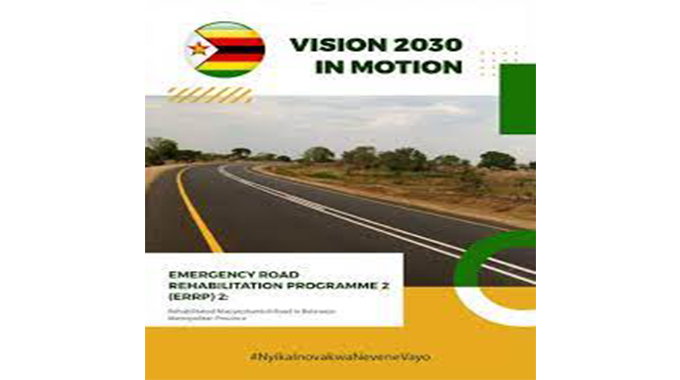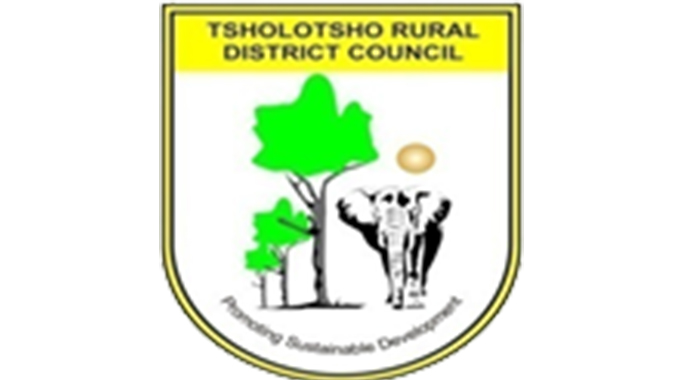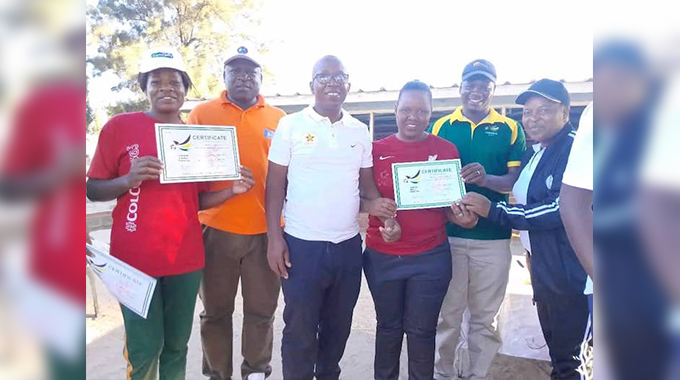Call to speed up road funds disbursement

Bongani Ndlovu, Chronicle Reporter
RURAL local authorities and traditional chiefs have urged Treasury to speed up disbursement of funds allocated towards infrastructure projects to facilitate adequate rehabilitation of roads, which are in a bad state.
While paying tribute to the Government for increasing allocations for infrastructure development in the 2023 national budget, they said delays in disbursements tend to frustrate project implementation and ultimately service delivery.
As the 2023 National Budget comes into effect this month, chief executive officers of rural district councils (RDCs) and traditional leaders said they were hopeful that Treasury will fast-track the release of budgeted funds, especially under devolution and for key projects in their areas.
Finance and Economic Development Minister, Professor Mthuli Ncube, presented a $4,5 trillion budget that was welcomed as people-centred by ordinary Zimbabweans and economic experts.
The Senate and the National Assembly have both passed the budget statement, giving the required legal approval to roll and allowing Government to spend money in line with the detailed estimates of expenditure.
In addition to a $1,1 trillion budget for infrastructure projects, the 2023 national budget ring-fences $195,5 billion, being five percent of the anticipated revenue resources towards lower tiers of Government in support of construction, upgrading, and rehabilitation of facilities in health, transport, education, water, and sanitation, as well as procurement of plant and equipment by local authorities.
Treasury bond issuances of US$100 million will also be issued in tranches through the Victoria Falls Securities Exchange (VFEX), specifically for infrastructure development targeting road rehabilitation and irrigation infrastructure.

Emergency Road Rehabilitation Programme (ERRP).
The Emergency Road Rehabilitation Programme II has been allocated $70,5 billion for the implementation of priority trunk and tertiary road projects in provinces and districts, as well as major arteries in urban areas.
Commenting on these, Tsholotsho Rural District Council chief executive officer, Mr Nkululeko Sibanda, said it was hard to implement projects if only $30 million is disbursed out of the $500 million allocated.
“In 2022 we were allocated $500 million but we only got $30 million or so. We have plans, we have programmes and as we speak we are going to Gweru to meet the Minister of Local Government and Public Works for a performance appraisal,” he said.

Bubi-Lupane Irrigation Scheme
“In my performance contract, I plan for the allocation that I would have been given. But the allocation does not necessarily mean it’s the one that is given to us.
“As a district, we would have programmed that we were allocated so much, but when that money is going to be deposited or transferred to us, that’s where the challenge is.”
Dr Patson Mlilo, chief executive officer for Bubi Rural District Council, paid tribute to Government for recognising RDCs in the Constitution.
He, however, pleaded for the disbursement of the full amounts that would have been allocated in the budget.
“Our plea to Government is to give us to the last dollar of the amount from the budget allocated. For example, if I budget for a borehole drilling rig and it costs a certain amount of money, the money should come as it is,” he said.
“If Government doesn’t, it becomes difficult for me to do what I want to do as an RDC,” said Dr Mlilo.
Just like his counterpart in Tsholotsho, Dr Mlilo said Bubi received a fraction of its allocation last year.
“We were allocated $309 million for devolution, but we were only given $75 million in December. But with that money, we were able to drill boreholes, build classroom blocks, block of toilets and we bought a backhoe loader,” said Dr Mlilo.
He said delays in funding affect operations in infrastructure development.

“The delays affect us a lot especially when we are building schools or clinics and the like. When work stops and we wait for more money to start the contractors will bill us more money.
“We hope that the money for roads is given to us in May so that we start fixing roads around the district. But if the money is given to us in December, it becomes difficult for us to fix the roads as it’s in the middle of the rainy season,” said Dr Mlilo.
Kusile Rural District Council chief executive officer, Mr Sifiso Hadebe urged the Government to disburse money timeously.
“There are many places that have bad roads, but we have challenges as the money is released late or at times the money doesn’t come,” he said.
“Most of the roads that are a challenge are those, which are under the Ministry of Transport. With the allocation from devolution funds, we had to take some money and purchase fuel so that we fix a road in Mzola 5 where villagers couldn’t access the road because of its state.

“The stretch is about 8km that is damaged, but the inaccessible part is 4km. We are a long way from finishing the stretch,” said Mr Hadebe.
He suggested that the money from Treasury be distributed consistently to allow effective project implementation.
“The funding can be released every two or three months. The last allocation we received was in June last year, and then the next one was in November or December.
“If we are given money at the end of the year, the value will be less compared to the beginning of the year,” said Mr Hadebe.

Chief Nyangazonke
Chief Senator Nyangazonke from Matobo District in Matabeleland South also said the budget allocations must be disbursed early.
“Government must disburse the money in the shortest possible time so that when someone has the tender can do the job, but also do it professionally and quality,” he said.
“For the purpose of the nation, just do what you are supposed to do. We should find where the problem is, that this, money is received late and also only a fraction that it’s supposed to be, and then find a solution,” said Chief Nyangazonke.












Comments